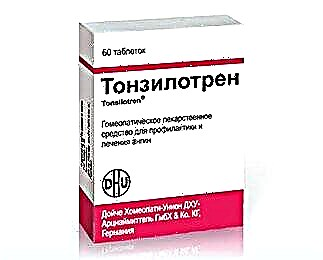Pneumatization of the paranasal sinuses - what is it? To answer this question, you need to know that the axillary cavities are represented as empty spaces. They are concentrated in the face and are connected to the nose by means of channels.
Sinus pneumatization (PNN) is a special term for the presence of a certain volume of air in the sinuses. This is a criterion for assessing their condition. In other words, we are talking about their filling with air throughout the volume, as well as the possibility of its unhindered circulation. Normal pneumatization creates optimal conditions for the correct functioning of the sinuses and their performance of the prescribed functions for warming and disinfecting the air entering the body. Reduced pneumatization indicates the presence of one or another inflammatory process.
Diagnostics
 An x-ray is used to examine the paranasal sinuses. This is a traditional diagnostic method that is prescribed if a patient complains about:
An x-ray is used to examine the paranasal sinuses. This is a traditional diagnostic method that is prescribed if a patient complains about:
- pain in the paranasal sinuses;
- fever;
- chills;
- purulent nasal discharge and some other symptoms.
In addition to collecting anamnesis (interviewing the patient) and X-ray examination, the rhinoscopy method is actively used. All this makes it possible to determine in what condition the paranasal sinuses are, whether he has sinusitis, what is its shape and severity.
To improve the accuracy of the diagnosis, the pneumatization criterion is used. It, in turn, can be normal (preserved), decreased or increased.
In the process of assessing the level of pneumatization, the inflamed sinus is compared with the healthy one. In addition, during the examination, it is necessary to analyze the current state of the bony walls of the sinuses, the presence / absence of pathological neoplasms (cysts, polyps). When can the level of pneumatization change? What are the reasons for this important indicator and criterion of assessment?
Reasons for changes in sinus filling
When assessing the level of filling of the sinuses with air, it is necessary to take into account the person's age. So, in early childhood, the paranasal sinuses are not fully formed. By the age of two, only the maxillary sinuses can be found in a child, while the other 3 sinuses are formed only by the age of 12. According to doctors, in most cases, the sinuses are not pneumatized enough due to the presence of a certain inflammatory disease.
The paranasal sinuses may be poorly pneumatized after the onset of sinusitis caused by pathogens. In addition to sinusitis, rhinitis (runny nose) that is not completely cured can affect the level of air filling in the sinuses.

In the absence of any pathologies, the sinus is completely healthy, that is, it effectively performs the tasks assigned to it. In this case, the doctor says that the sinuses are pneumatized. In other words, the air circulates within them normally.
At the same time, sinuses can often be filled with transparent secretions (mucus) and even pus. This means that the cavity is affected by the inflammatory process. Most often, the following diseases lead to pathological changes:
- inflammation in the upper paranasal sinuses (sinusitis);
- ethmoid sinus inflammation (ethmoiditis);
- violation of the normal functioning of the frontal sinuses (frontal sinusitis);
- damage to all existing sinuses (pansinusitis);
- inflammation in the main sinus (sphenoiditis).
Levels of sinus filling with air
The doctor can state one of the levels of sinus pneumatization - preserved (normal), decreased and increased:
 Reduced pneumatization is a direct result of inflammation in the maxillary sinus with thinning of its lower septum. This can happen if caries and other infectious dental diseases are diagnosed. Often, a decrease in the level occurs due to purulent formations, congenital defects of the sinuses, polyps and other pathological neoplasms.
Reduced pneumatization is a direct result of inflammation in the maxillary sinus with thinning of its lower septum. This can happen if caries and other infectious dental diseases are diagnosed. Often, a decrease in the level occurs due to purulent formations, congenital defects of the sinuses, polyps and other pathological neoplasms.- What does it mean - pneumatization is saved? This is a positive signal for any patient undergoing a paranasal sinus examination. Such a medical opinion suggests that the sinuses are in a normal state and are doing well with their primary tasks. In addition, this indicates the absence of any diseases or pathological processes within the sinuses.
- If we talk about increased pneumatization, then such a verdict can tell us about a change in the optimal normative indicators of filling the sinuses upward. In particular, increased pneumatization is an unambiguous signal of malfunctioning of the endocrine system. Against this background, gigantism (violation of the proportions of body parts) and acromegaly - expansion and thickening of the facial bones of the skull often develop.
When you need a doctor's help
We recommend that you immediately consult a doctor if you identify the characteristic symptoms of inflammation of the paranasal sinuses. If you ignore the problem for a long time and let the disease take its course, dangerous complications and a significant deterioration of the clinical picture cannot be avoided.
Remember, the nose is very close to other vital systems. Therefore, inflammation of the sinuses can adversely affect the functioning of the organs of sight and hearing (up to the complete cessation of their normal work).
The following symptoms should prompt you to seek professional help:
- discomfort and discomfort when tilting the head (pains are localized in the frontal part, in the area of the eyes and nose);
- profuse purulent discharge from the nose;
- feeling of excess pressure in the facial area (even in the absence of any nasal discharge);
 prolonged nasal congestion;
prolonged nasal congestion;- frequent nasal congestion;
- severe periodic lacrimation;
- general weakness;
- excessive fatigue even after minor exertion;
- an increase in body temperature to subfebrile indicators (up to 38 degrees);
- swelling of soft facial tissues;
- dry cough, worse at night, and so on.
In order to feel normal, it is extremely important for all of us to breathe through the nose and to ensure optimal ventilation of the paranasal sinuses. This, in turn, has a positive effect on the quality of gas exchange in the blood and the general condition of the body.
The inability to breathe normally through the nose is a sure sign of an inflammatory process. Therefore, do not delay going to the doctor. Breathe deeply, live happily ever after!

 Reduced pneumatization is a direct result of inflammation in the maxillary sinus with thinning of its lower septum. This can happen if caries and other infectious dental diseases are diagnosed. Often, a decrease in the level occurs due to purulent formations, congenital defects of the sinuses, polyps and other pathological neoplasms.
Reduced pneumatization is a direct result of inflammation in the maxillary sinus with thinning of its lower septum. This can happen if caries and other infectious dental diseases are diagnosed. Often, a decrease in the level occurs due to purulent formations, congenital defects of the sinuses, polyps and other pathological neoplasms. prolonged nasal congestion;
prolonged nasal congestion;

